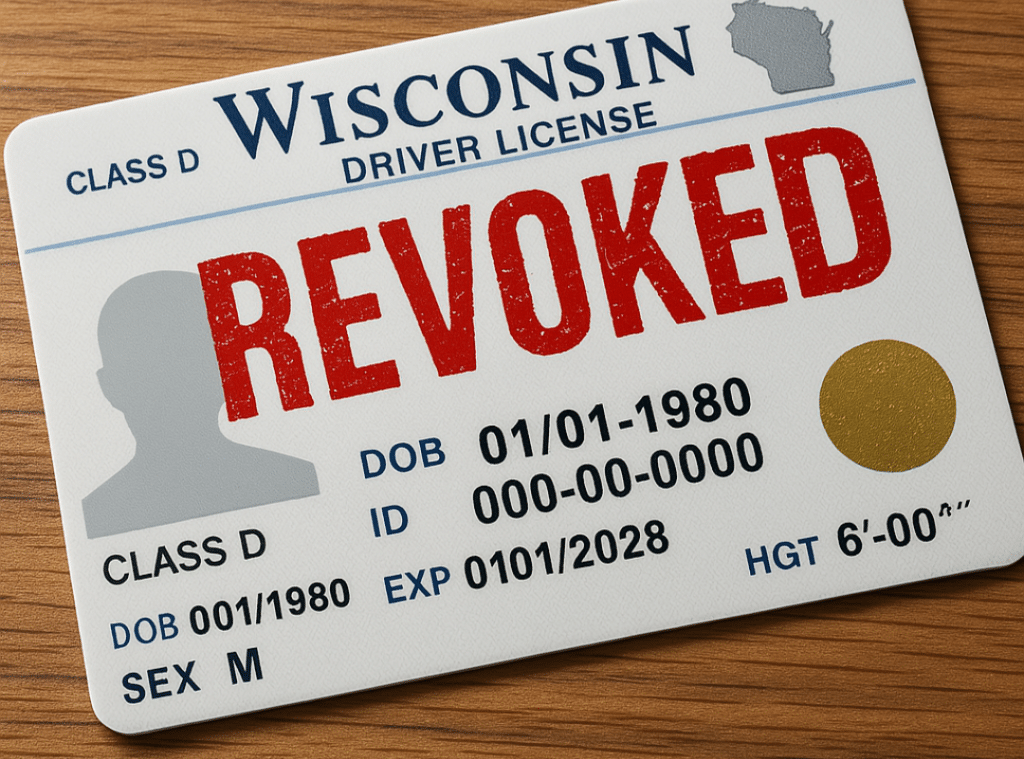
Understanding the Ruling and Its Impact on OWI Defense in Wisconsin
A recent Wisconsin Court of Appeals decision in State v. Jagla, filed March 18, 2025, sheds light on a critical issue in OWI defense in Wisconsin: when can law enforcement legally stop your vehicle based solely on information about the registered owner?
This case is especially important for those facing felony OWI charges in Wisconsin and raises key questions about traffic stop justification and Fourth Amendment protections.
The Facts:
Tobin Jagla was pulled over by police in 2020 in Wood County. The officer ran the vehicle’s plates and found that the registered owner—Jagla—did not have a valid Wisconsin driver’s license. Based solely on that information, the officer initiated a traffic stop. Jagla, who had seven prior OWI convictions, was ultimately charged with OWI 8th offense.
Jagla challenged the legality of the stop, arguing that it violated his constitutional rights because the officer had no evidence that he, not someone else, was driving the vehicle.
The Legal Question:
Can an officer stop a vehicle solely because the registered owner of the vehicle does not have a valid driver’s license?
The Court’s Answer: Yes—Under Certain Circumstances.
The court reaffirmed a 2005 Wisconsin Supreme Court ruling (State v. Newer) holding that it is reasonable for an officer to assume that the registered owner of a vehicle is the person driving, so long as the officer has no evidence to suggest otherwise.
In Jagla’s case, the stop was upheld because:
•The vehicle was registered to Jagla.
•Jagla did not have a valid license.
•The officer had no information suggesting someone else was driving the car.
Why This Matters for OWI Defense in Wisconsin:
This decision reinforces that a simple license check can lead to a lawful traffic stop—even in the absence of erratic driving or other suspicious behavior. For repeat OWI offenders, this raises the stakes significantly, as any contact with law enforcement could result in new felony-level charges.
At DK Anderson, S.C., we know that Fourth Amendment challenges are a key strategy in OWI cases. But Jagla highlights the narrow limits of these arguments when it comes to registered vehicle owners with suspended or revoked licenses.
Takeaways from State v. Jagla:
• Police may stop a vehicle if the registered owner has a suspended or revoked license.
• The stop is likely valid unless there is a clear reason to believe someone else is driving.
• Drivers with prior OWI convictions or license restrictions should be especially cautious about who is driving a car registered in their name.
Protecting Your Rights After an OWI Arrest
While Jagla shows that courts will uphold certain vehicle stops based on license status alone, it does not mean every OWI stop or arrest is valid. Each case is unique. At DK Anderson, S.C., we examine:
• Whether the officer had reasonable suspicion or probable cause to conduct a traffic stop;
• The legality of any searches or seizures;
• Any constitutional violations that may lead to suppression of evidence or dismissal.
If you’ve been charged with OWI—especially a repeat offense—it’s critical to act quickly and work with an attorney who understands both Wisconsin law and recent appellate decisions like Jagla.
Need Help? Contact DK Anderson, S.C. Today
If you’ve been charged with Operating While Intoxicated (OWI) in Wisconsin and believe your traffic stop may not have been legal, contact DK Anderson, S.C. today for a free consultation. We serve clients in Madison and throughout Southern Wisconsin, providing aggressive and informed defense strategies for every stage of your case.
Call (608) 204-5807 for a Free Consultation
FAQs: Traffic Stops Based on Revoked License in Wisconsin
Yes, under Wisconsin law, police can initiate a traffic stop if they know the registered owner of the vehicle has a revoked license—but only if they have no reason to believe the driver is someone else. If the officer has information that suggests someone else is driving, the stop may violate your constitutional rights.
As long as the officer did not have reason to believe someone other than the owner was driving, the stop may still be valid. However, law enforcement still needs to have a legal basis to continue with the traffic stop. This makes the legality of the stop a crucial defense issue.
Yes, a person with a revoked license can legally allow someone else to drive their vehicle. However, it’s important to understand that police might still stop the car based on the revocation, especially if they believe the owner is the one driving.
Our Practice Areas
Drunk Driving
Whether you are charged with a first offense, or a fifth offense, our Wisconsin OWI attorneys can help.
Violent Crimes
A conviction for any one of Wisconsin's violent crimes will have significant consequences.
Drug Charges
Our Wisconsin Drug charge attorneys know the law and how to apply that law in the court room.
Domestic Violence
A conviction for a domestic violence charge in Wisconsin has additional consequences.
Property Crimes
Wisconsin property crimes include theft, forgery, and criminal damage to property.
Sex Offenses
Not much will change your life like a conviction for one of Wisconsin's sex offense charges.
Traffic Citations
Although less serious than a criminal charge, a traffic citation can effect your driver's license.
